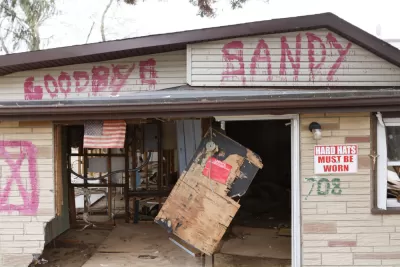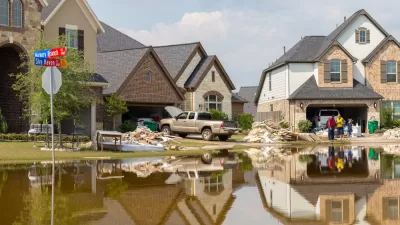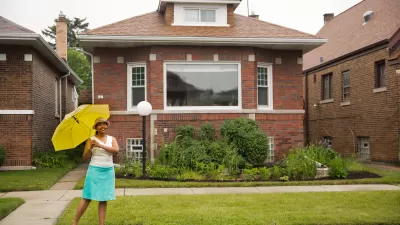The largest privately funded climate-adaptation program in the United States, 100 Resilient Cities, will conclude in July.

Late last week, reports that the Rockefeller Foundation would end its groundbreaking climate resilience program, 100 Resilient Cities, caught the climate change advocacy community by surprise.
Christopher Flavelle wrote on March 28 to break the news of the program's impending doom, also explaining how the 100 Resilient Cities program works and where in the United States funding had been allocated "to hire 'chief resilience officers'" and grant "access to the organization’s staff and external consultants, as well as to a global network of cities trying to grapple with similar problems."
Twenty-four large and medium U.S. cities use the program, among them some of those most exposed to hurricanes and rising seas, including New Orleans, Houston, Seattle and Norfolk, Virginia. But the initiative also drew in cities far from the coast, such as Tulsa, Oklahoma; Louisville, Kentucky; Pittsburgh and St. Louis -- places contending with other types of extreme weather, like flooding and heat waves.
The initiative’s approach is to define resilience broadly, in a way that incorporates the social and economic challenges likely to amplify the physical shocks of natural disasters. That approach matches the overlapping risks associated with climate change.
Analysis by the Urban Institute, completed in 2018, found the program to be mostly effective.
In the process of breaking the news, Flavelle also speculated that the program's demise might be connected to leadership change at the Foundation.
Flavelle also published a follow up article confirming the news on April 1, 2019, adding additional details about the future of the Rockfeller Foundation's climate change work.
Rockefeller will shift some of its resilience funding to the Atlantic Council, a Washington-based think tank, with a $30 million grant to the council’s Adrienne Arsht Center for Resilience, the foundation said in a press release. Rockefeller also announced a $12 million grant “to allow continued support and transition time to the 100 Resilient Cities network through much of 2019.”
A Rockefeller Foundation spokesperson, Matt Herrick, is quoted in the article saying the 100 Resilient Cities program ended because it had achieved most of its goals.
A separate article by Eillie Anzilotti expands on the implications of the decision, describing the end of the program as a "blow" to the evolving field of sustainability and resilience.
FULL STORY: Rockefeller to Wind Down Biggest Private Climate Resilience Push

Maui's Vacation Rental Debate Turns Ugly
Verbal attacks, misinformation campaigns and fistfights plague a high-stakes debate to convert thousands of vacation rentals into long-term housing.

Planetizen Federal Action Tracker
A weekly monitor of how Trump’s orders and actions are impacting planners and planning in America.

San Francisco Suspends Traffic Calming Amidst Record Deaths
Citing “a challenging fiscal landscape,” the city will cease the program on the heels of 42 traffic deaths, including 24 pedestrians.

Adaptive Reuse Will Create Housing in a Suburban Texas Strip Mall
A developer is reimagining a strip mall property as a mixed-use complex with housing and retail.

Study: Anti-Homelessness Laws Don’t Work
Research shows that punitive measures that criminalized unhoused people don’t help reduce homelessness.

In U.S., Urban Gondolas Face Uphill Battle
Cities in Latin America and Europe have embraced aerial transitways — AKA gondolas — as sustainable, convenient urban transport, especially in tricky geographies. American cities have yet to catch up.
Urban Design for Planners 1: Software Tools
This six-course series explores essential urban design concepts using open source software and equips planners with the tools they need to participate fully in the urban design process.
Planning for Universal Design
Learn the tools for implementing Universal Design in planning regulations.
Heyer Gruel & Associates PA
JM Goldson LLC
Custer County Colorado
City of Camden Redevelopment Agency
City of Astoria
Transportation Research & Education Center (TREC) at Portland State University
Jefferson Parish Government
Camden Redevelopment Agency
City of Claremont





























